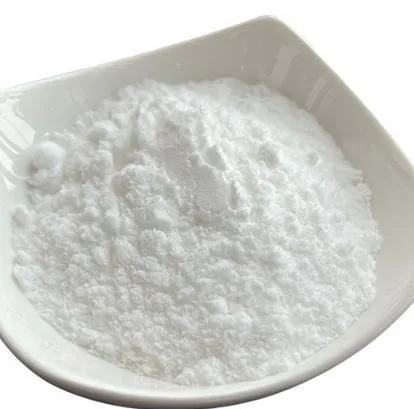Warning: Undefined array key "file" in /home/www/wwwroot/HTML/www.exportstart.com/wp-content/themes/1198/header.php on line 7
Warning: Undefined array key "title" in /home/www/wwwroot/HTML/www.exportstart.com/wp-content/themes/1198/header.php on line 7
Warning: Undefined array key "title" in /home/www/wwwroot/HTML/www.exportstart.com/wp-content/themes/1198/header.php on line 7
- Afrikaans
- Albanian
- Amharic
- Arabic
- Armenian
- Azerbaijani
- Basque
- Belarusian
- Bengali
- Bosnian
- Bulgarian
- Catalan
- Cebuano
- China
- China (Taiwan)
- Corsican
- Croatian
- Czech
- Danish
- Dutch
- English
- Esperanto
- Estonian
- Finnish
- French
- Frisian
- Galician
- Georgian
- German
- Greek
- Gujarati
- Haitian Creole
- hausa
- hawaiian
- Hebrew
- Hindi
- Miao
- Hungarian
- Icelandic
- igbo
- Indonesian
- irish
- Italian
- Japanese
- Javanese
- Kannada
- kazakh
- Khmer
- Rwandese
- Korean
- Kurdish
- Kyrgyz
- Lao
- Latin
- Latvian
- Lithuanian
- Luxembourgish
- Macedonian
- Malgashi
- Malay
- Malayalam
- Maltese
- Maori
- Marathi
- Mongolian
- Myanmar
- Nepali
- Norwegian
- Norwegian
- Occitan
- Pashto
- Persian
- Polish
- Portuguese
- Punjabi
- Romanian
- Russian
- Samoan
- Scottish Gaelic
- Serbian
- Sesotho
- Shona
- Sindhi
- Sinhala
- Slovak
- Slovenian
- Somali
- Spanish
- Sundanese
- Swahili
- Swedish
- Tagalog
- Tajik
- Tamil
- Tatar
- Telugu
- Thai
- Turkish
- Turkmen
- Ukrainian
- Urdu
- Uighur
- Uzbek
- Vietnamese
- Welsh
- Bantu
- Yiddish
- Yoruba
- Zulu
7월 . 29, 2024 01:29 Back to list
Understanding Xanthan Gum's Compatibility with Vegetarian Diets and Its Common Applications
Xanthan Gum A Vegetarian-Friendly Food Additive
Xanthan gum is a popular food additive that has gained significant attention in recent years, particularly among those following vegetarian or vegan diets. Derived from the fermentation of glucose or sucrose by the bacterium Xanthomonas campestris, xanthan gum serves as a thickening agent, stabilizer, and emulsifier in various food products. Its unique properties make it a suitable choice for vegetarians seeking a versatile ingredient that can enhance the texture and consistency of their meals.
Origins and Production
The production of xanthan gum involves a fermentation process, which begins with cultivating the bacteria Xanthomonas campestris in a nutrient-rich environment. The bacteria ferment the sugars, resulting in the formation of a polysaccharide known as xanthan gum. After fermentation, xanthan gum is purified, dried, and milled into a fine powder, making it easy to incorporate into food products. Importantly, since the process does not involve any animal-derived ingredients, xanthan gum is completely suitable for vegetarians and vegans.
Nutritional Benefits
Although xanthan gum is not a significant source of nutrients, it does offer several functional benefits that can contribute to a vegetarian diet. As a soluble fiber, xanthan gum aids in digestion and can improve gut health by promoting the growth of beneficial gut bacteria. Moreover, it has the ability to absorb water, which helps enhance the texture of food products without adding extra calories. This feature makes it an excellent addition for those looking to reduce fat content in recipes while maintaining a creamy or gooey texture.
Common Uses
xanthan gum suitable for vegetarians

Xanthan gum is found in a wide array of food products, making it a staple in many kitchens, especially those focused on vegetarian and vegan recipes. It is frequently used in salad dressings, sauces, and dips, providing a smooth consistency and preventing separation. Additionally, it is a vital ingredient in gluten-free baking, where it helps mimic the elasticity and chewiness usually provided by gluten. By incorporating xanthan gum into gluten-free recipes, bakers can create breads, pancakes, and pastries that resemble traditional baked goods in texture and flavor.
Moreover, xanthan gum is often used in dairy alternatives, such as almond milk, coconut yogurt, and vegan ice cream, to improve viscosity and keep ingredients well-distributed. Its ability to stabilize emulsions is particularly beneficial in creamy dressings and sauces, ensuring that oils and thickeners remain mixed seamlessly.
Safety and Considerations
Xanthan gum is generally recognized as safe (GRAS) by regulatory agencies, including the U.S. Food and Drug Administration (FDA). However, some individuals may experience digestive discomfort when consuming xanthan gum in large quantities, particularly those with sensitivities to certain fibers. As with any food additive, moderation is key, and it’s advisable for individuals to monitor their body’s response.
Conclusion
For vegetarians and vegans seeking to enhance their culinary repertoire, xanthan gum is an invaluable ingredient that aligns perfectly with their dietary preferences. Its versatility as a thickening and stabilizing agent, along with its potential health benefits, make it a popular choice in modern cooking. By incorporating xanthan gum into recipes, individuals can create delicious, satisfying dishes that are both nutritious and in tune with a plant-based lifestyle. Whether used in salad dressings, baked goods, or dairy substitutes, xanthan gum proves to be an excellent ally in the kitchen for those committed to vegetarian living.
Latest news
-
2025 European Fine Chemicals Exhibition in Germany
NewsMay.13,2025
-
2025 New York Cosmetics Ingredients Exhibition
NewsMay.07,2025
-
Zibo will host the 2025 International Chemical Expo
NewsApr.27,2025
-
2025 Yokohama Cosmetics Raw Materials and Technology Exhibition
NewsApr.22,2025
-
2025 India Mumbai Fine Chemicals Exhibition
NewsApr.18,2025
-
Nanjing will host the 2025 Yangtze River Delta International Chemical Industry Expo and the National Chemical Industry Conference
NewsApr.15,2025

